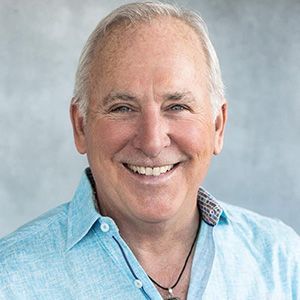Joy as an Act of Resilience
Choosing Light When the World Feels Heavy
As we navigate this strange and anxious world, choosing joy becomes more than a personal act of resilience—it is a gesture of hope. Joy can serve as a propulsive force, helping us reclaim our humanity and promote resilience and hope.
So why is it so challenging to choose joy in the midst of darkness?
Not surprisingly, the idea of claiming joy often seems like a distraction from what is truly pressing in life and the issues our world and country are facing. In moments of stress, anxiety, and depression, joy can feel like a selfish or guilty pursuit—precisely because everyone is going through so much. Drawing on our activist mentality, it is often easier to focus on the revolution than to find a place for pleasure and joy. This sentiment is affirmed by bell hooks:
“I often find it easier to be teaching or giving to others, and often struggle with the place of my own pleasure and joy.”
JOY LETS US RECLAIM OUR HUMANITY
Joy is a sign of vibrant life—of thriving. It is one of the things that makes us truly human. So depriving a group of people of joy, whether through an outright ban or through economic means, is a method of dehumanization. Reclaiming those sources of joy is a way to refuse to be dehumanized.
Holocaust survivor and author Elie Wiesel described a memory of a fellow prisoner trading a ration of bread for materials with which to piece together a makeshift menorah during Hanukkah. Shocked that the man would trade something so essential to his survival, Wiesel asked him, “Hanukkah in Auschwitz?” And the man replied, “Especially in Auschwitz.” The more dehumanizing the circumstances, the more we need these markers of our humanity.
As people who believe in putting love into action, we are primed to take care of others, respond to crises, mobilize, organize, and tackle the multiple injustices in our world. However, we also have to pay attention to joy. Otherwise, we might spiral into despair. Finding joy means doing the hard work of shifting our focus as often as possible to appreciate the good that happens. It's how we gather the energy to do the important work. Connecting to and claiming joy is about keeping the flame and fire alive—because joy is a beautiful generator of hope.
Former Archbishop Desmond Tutu reminds us,“Give the world your love, your service, your healing—but also give your joy.”
“I sometimes forget that I was created for JOY. My mind is too busy. My heart is too heavy for me to remember that I have been called to dance the Sacred dance of life. I was created to smile, to love, to be lifted up. O Sacred One, untangle my feet from all that ensnares. Free my soul that we might dance—and that our dancing might be contagious.” —Hafiz
JOY AS A POLITICAL STRATEGY
In a world where we are inundated by stories of our powerlessness, claiming our right to joy enables us to re-vision ourselves in ways that are meaningful and important to us—rather than conforming. Claiming joy politically also has a collective element. Employing joy as a strategy of solidarity provides us with an emotional tool to nurture optimism for the future.
Claiming joy reminds us that love, connection, and beauty are available in abundance to us all—and that we are worthy of living a full and beautiful life. Joy can connect us by affirming our collective humanity.
TIPS FOR CONNECTING TO JOY
- Recognize that joy is not a luxury or privilege—it is necessary to our humanity.
- Take little joy steps. Care for yourself in small ways. Slow down on watching the news. Build happiness breaks into your daily life. What brings you joy? What feeds your spirit?
- Pay attention to your body. Make time for movement—walking, hiking, yoga, running, dancing.
- Focus on gratitude. Create a gratitude or joy list. Appreciate what you already have. Gratitude is at the heart of contentment.
- Create connection and community. We yearn for deeper connection and a sense of belonging.
- Consciously choose joy. Choose joy. Choose joy.












